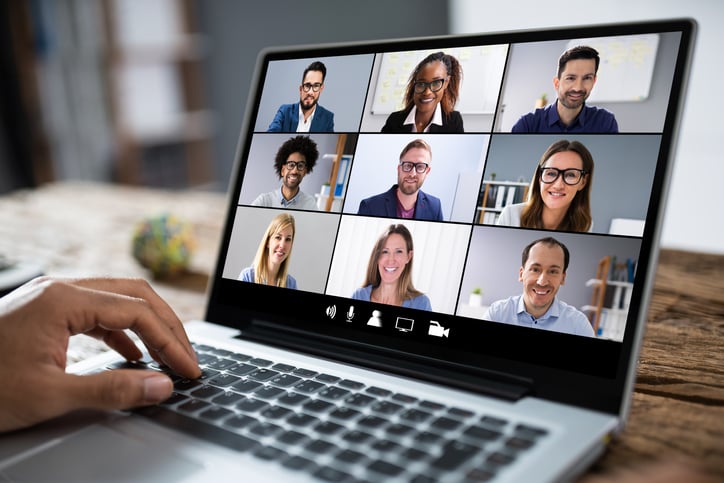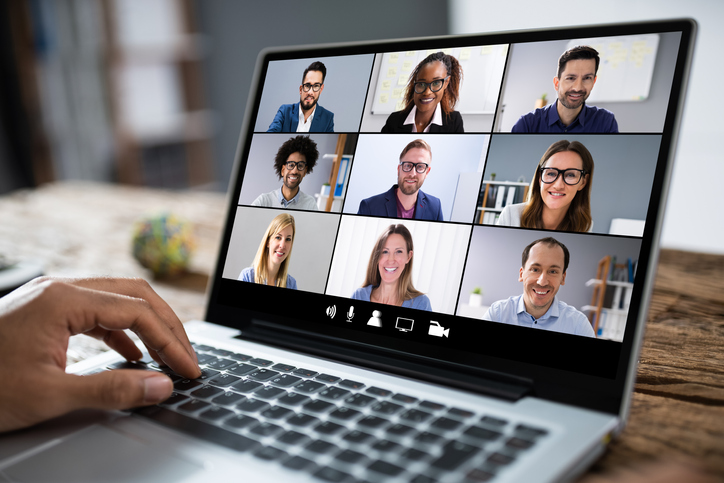
In the first few months of 2020, Zoom usage has skyrocketed. Daily downloads in January were 56,000. In March, that number rose to 2.13 million. Families and friends use it to catch up and check in on each other. Businesses utilize it for remote meetings and to instill a sense of culture and camaraderie. Even law firms have found Zoom to be a useful tool for consulting with clients, as well as appearing before judges.
The sheer number of audio/video files generated by companies around the world that use Zoom for business means they will become enormously important in future legal cases. Which is why organizations need to know how best to record and preserve Zoom meetings.
Here are some tips and information to ensure that your Zoom recordings are ready for trial, if needed:
How to Record Zoom Meetings for eDiscovery
While there are numerous rules you need to follow to ensure a secure Zoom meeting (such as creating events that only allow signed-in users to participate and password protecting each meeting), there are a few things to keep in mind to ensure that your meeting is discoverable.
- Of course, make sure you’re using the latest version of Zoom. Right now, that means version 5.0 or greater.
- Tell your employees to use company accounts, email addresses, phone numbers, etc. for work-related Zoom meetings whenever possible to avoid the need for discovery of their personal accounts.
- For any employees hosting Zoom meetings, have them choose “Record to this Computer” to save the recording in an MP4 format on their local workstation, which is preferred for discovery purposes. Using “Record to the Cloud,” which saves to Zoom’s website, makes eDiscovery more difficult as such data may not be captured by legacy eDiscovery tools or processes.
- Also, keep in mind that you may not want to record meetings covering potentially sensitive topics, for example, employee termination discussions, as they could become discoverable ESI (electronically stored information) in a future court case.
Recording Laws
Since laws around recording conversations differ from state to state (as well as country to country), it’s always a good idea to get consent from all parties on the call. Make sure you develop a uniform disclaimer approved by your attorney and add it to your Zoom meeting invitations. Then, before any discussion begins, have the host remind attendees that the call is being recorded. Or, better yet, enable Zoom’s multiple recording notifications feature: an automated message that appears either on screen or as an audio prompt when a recording begins or a participant enters a session that is already being recorded.
How to Preserve Zoom Recordings for eDiscovery
Zoom not only captures audio and video of what speakers on the call say and do, it also automatically creates a record of a variety of information surrounding the recording. This metadata, in addition to the audio/video files, must be collected and reviewed in the event of a lawsuit or other legal purposes, as it contains important information, including the date and time the file was created, the GPS coordinates of the location in which it was recorded, any screens shared, chat message content, a list of attendees, and more.
If you record a significant number of your company’s Zoom meetings, have someone serve as a “Zoom librarian.” He or she would be responsible for collecting recording files from your employees, centralizing the files on your company’s server, and keeping detailed logs of each meeting’s content, etc. You should also create a retention policy for Zoom recordings. Let industry regulations, tax laws, and business necessity be your guide when determining how long Zoom recording data will be kept by your organization.
Now, if your company is ever involved in a lawsuit and you have performed these tasks, your preserved Zoom recordings will be that much easier to collect by lawyers for purposes of the trial. All of these tips are easy to do and only require a bit of extra thought and preparation, but the benefits of preserving your Zoom meetings properly – namely saving time, money, and possibly even aiding your case – will certainly be worth the effort.
Keep an eye out for Avalon’s upcoming webinar on Zoom meetings, coming this July! Our experts will discuss Zoom teleconferencing from both a legal and a cybersecurity perspective, so you won’t want to miss it!
SOURCES
https://iprotech.com/industrynews/zoom-boom-ediscovery-considerations-around-videoconferencing/
https://www.lawtechnologytoday.org/2018/08/audio-and-video-in-e-discovery/

